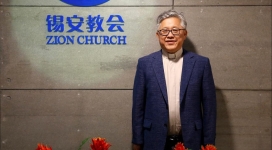The Evangelical Lutheran Church in America (ELCA) entered the second phase of their plan to re-structuralize, re-budget and re-staff the churchwide units in the denomination, on May 1, 2004. If all go according to the three-step plan adopted in November of 2003, Phase Two, which involves building and developing models, will last through July.
"The representative panel will analyze responses and create elements of alternative designs for the churchwide organization," the council said in November 2003. "The panel will invite a widespread response to this analysis and suggested design elements."
The planning and evaluation committee will facilitate the panel's first meeting May 13?14. The Council also plans to send out surveys late May to groups that participated in Phase One. A summary and analysis of the survey responses will be ready by June.
“The planning and evaluation committee will discuss the material online and by conference call, and the presiding bishop will begin to draft a proposal starting in July," according to the revised timeframe. "A meeting of the presiding bishop with organizational design consultants will occur in late July. This approach will permit the discussion of elements of the design with the planning team and eventually the writing team during August," it said.
According to Dr. Kenneth W. Inskeep, director, ELCA Department for Research and Evaluation, there are several “expectations” Lutherans have of their churchwide organizations. The main three are for the organization to be an expert tender of networks, instrument of change and connectors as well as a sustainer.
"The goal of churchwide work would be to help people achieve their own, locally shaped goals. The churchwide organization would help the networks do this work better, making it of higher quality and more effective and more efficient," said Inskeep.
As an expert tender of networks, the role of the churchwide organization would be one of "gently guiding and directing," Inskeep said.
As an instrument of change, the churchwide organization would be "out in front, holding itself and the other expressions of the church accountable, particularly on issues related to the full participation of women and people of color or primary language other than English and other issues of social justice," Inskeep said.
As a connector and sustainer, "the churchwide organization will continue to provide support for a critical ministry that is too easily overlooked or disregarded. People with disabilities, rural, outdoor ministries, preschools, schools and a host of other ministries" would be supported through a series of "desks," he said.
The ELCA – the fifth largest denomination the United States – has some 5 million adherents in 10,781 congregation.







